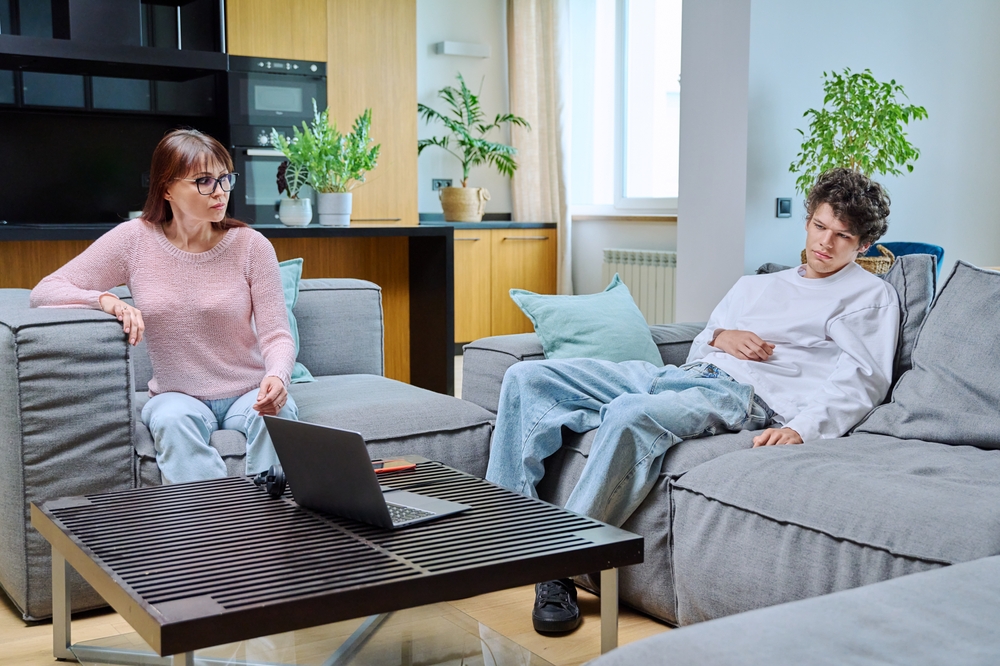 A residential treatment center (RTC) is a facility that provides care and therapy for substance use disorder, and mental health issues like depression or Bipolar and behavioral issues. It’s also a live-in healthcare center where troubled teens can go for safe rehabilitation.
A residential treatment center (RTC) is a facility that provides care and therapy for substance use disorder, and mental health issues like depression or Bipolar and behavioral issues. It’s also a live-in healthcare center where troubled teens can go for safe rehabilitation.
RTCs are successful in the sense that they provide residential programs that can help teenagers overcome their addictions and manage their behavioral issues. The right facility will provide support and care even after the patient has been discharged.
So is rehab necessary for teenagers and does it provide successful results? In this article, we discuss who the best candidates are for RTC treatment and the benefits it can provide teenagers with substance abuse and co-occurring disorders.
Who Is the Best Candidate for Residential Treatment?
The best candidates for residential treatment programs are those who are addicted to drugs, alcohol, prescription medication, and even pornography. RTCs provide a stable environment with structured routines throughout the day, which is beneficial to those who have medical problems or compliance issues.
Moreover, a rehab center is ideal for teenagers who’ve been exposed to drugs, abuse, and other illegal activities. The purpose of residential treatment is to monitor patients and to provide intensive care for those who need to be weaned off substances.
What is Residential Treatment Like?
A residential program specializes in inpatient care 24/7 to monitor progress and areas that need to be addressed during treatment. Teenagers who need treatment for substance use or mental disorders must have the proper medical care to prevent injury or death.
Substance use disorder is serious and without the proper treatment, patients can overdose. These facilities provide patients with the correct medication prescribed by a professional practitioner and therapeutic sessions in a controlled and safe environment.
What do Residential Treatment Centers Provide to Teenagers?
Residential treatment programs can differ depending on the facility and its processes. However, they provide a room for patients to sleep in with beds, linen, and maybe a table and a chair. Additionally, patients are provided with meals and beverages every day. They also have access to bathrooms for personal hygiene purposes.
For patients to overcome their substance use disorder or mental health problems, the RTC will provide family therapy as well as group therapy in a structured environment. Therapy can help teenagers who have mental health concerns such as anxiety, depression, or anger that may lead to relapses.
Additionally, inpatient care can include extracurricular activities such as art therapy, skill development, and academic support.
How These Centers Help Teens Overcome Addiction and Mental Health Problems
It can be stressful for teenagers to be away from home when they're being treated for their substance abuse or mental disorders. That’s why RTCs have professional therapists to help patients in their everyday lives to ensure they don't relapse. Daily routines are crucial to keep teenagers focused on healing from trauma and breaking their habits.
Substance abuse and mental health disorders can cause many behavioral issues such as anger, frustration, sadness, and hopelessness. Therapy gives patients a sense of purpose again and helps them overcome challenges in their daily lives.
What Rights Do Teens Have at These Facilities?
At a residential facility, teenagers have the right to keep a selection of personal belongings such as toiletries or comfort items from home. However, the people managing the facility may keep sharp objects locked away for safety reasons.
Teenagers also have a right to wear their own clothing as long as they're not revealing. Patients can receive personal phone calls that are confidential but they'll need to be taken at a reasonable time. However, teenagers who are under treatment must stay at the facility between 30 and 60 days. Parents and guardians can visit patients during visiting hours.
How do Parents Interact with Their Teens There?
One of the ways teenagers overcome their substance abuse or manage their mental health is by receiving family therapy sessions. A professional therapist can address various areas of the family dynamic and provide a safe space for teenagers and parents to voice their concerns.
The purpose of family therapy is to improve communication between the patient and the caregiver. Professional therapists collaborate closely with the patient and their parents to overcome barriers and foster understanding and empathy. It's crucial that parents only interact with their teenagers when a therapist is present during treatment to ensure the patient doesn’t fall back into bad habits.
The Benefits of Residential Treatment
Teenagers who have behavioral issues or have abused drugs don’t have any form of structure in their daily lives. At a residential treatment facility, the main goal is to provide a routine so they can overcome their addictions in a controlled environment.
Another important benefit of residential treatment is that troubled teenagers get the support they need whenever they feel a relapse coming on. They’re also surrounded by other people who are seeking help so they can get advice and build friendships with like-minded individuals.
RTCs provide a safe environment for troubled youths to detox, express their emotions, and get quality medical care while they recover.
How Successful Are Residential Treatment Centers?
Parents are advised to always seek professional help if they’re experiencing problems with their teenagers, whether it’s substance abuse or mental health concerns.
We recommend attending family therapy sessions so you can understand your child and what they need to stay sober
Taking your child to a residential treatment center like Liahona brings your teen one step closer to a full recovery.